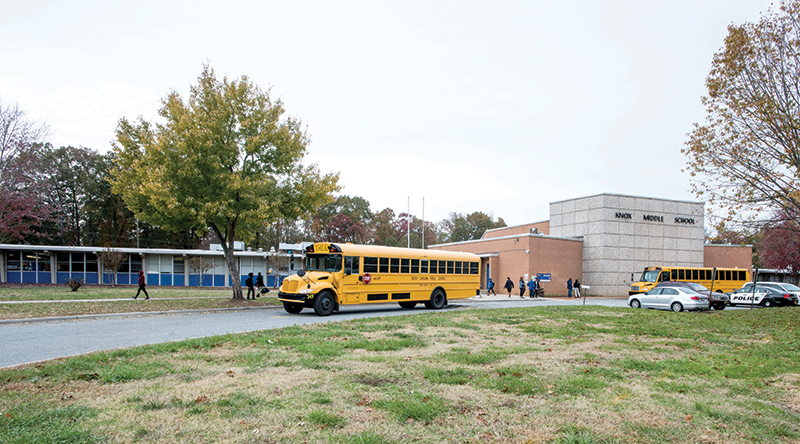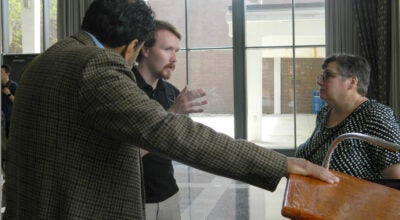School board chairman says RSS can’t afford inaction on Knox-Overton
Published 12:01 am Wednesday, December 11, 2019

- SALISBURY POST FILE PHOTO - Knox Middle School on a Friday afternoon in November 2019.
SALISBURY — Kevin Jones, new chairman of the Rowan-Salisbury Board of Education, says he’d like members to come to a decision about the future Knox Middle and Overton Elementary schools “sooner rather than later.”
“Hopefully at our next meeting, in January,” Jones, who took over as chairman of the board Monday night, told the Post. “It’s obviously still an important issue.”
And while the board’s first meeting in January is the 13th at 4 p.m., it’s unclear if the board will reconsider renovating Knox and closing Overton then. Before he turned over the reins to Jones, former chairman Josh Wagner said staff still needed to gather data.
“Not doing anything is the worst thing,” Jones told the Post. “We’ve got to continue to have conversations and consider all options.”
The board in November paused its plans for a $26 million renovation of Knox Middle School, which would result in the closure of Overton Elementary, after dozens of students, parents, grandparents and community members voiced their opposition. Instead of a renovation, members of the Knox-Overton community are pressing the school board to return to a proposal to build a K-8 school on a football field between the two facilities. The cost of that endeavor would be north of $50 million.
A number of people returned to the school board Monday night to reiterate they opposed the renovation plan.
The school board, with the renovation plan, would spend roughly $260 per square foot for a facility that would be at 96% capacity, said parent and architect Elizabeth Trick. It would be a poor use of tax dollars, Trick said.
While a K-8 school would be more expensive, up to $300 per square foot, the higher price tag would be worth it, she said.
St. Luke’s Episcopal Church Rector Robert Black and other speakers Monday said they empathize with tough decisions about redistricting and capital needs. Knox Middle School’s poor condition prompted an agreement years ago between county commissioners and the school board that local money would be provided for renovations.
“I work in a church, which certainly knows the stresses of changing times, and I’ve been a part of some boards within my denomination, which have had to wrestle with closing churches when the time comes,” Black said. “I understand the emotionally charged situation that you all are in. You have to act because the outdated status quo simply doesn’t work anymore, but every path forward is met with resistance.”
But Black said he’s learned two, relevant things in discussions about closing churches.
“You don’t close historically African-American churches,” he said. ” … And you don’t close churches that have a sense of innovation and mission.”
A K-8 school is a “new and exciting way of addressing what the renewal plan is supposed to be all about,” he said. That is providing for the whole student, Black said.
Attorney and philanthropist Ed Norvell said closing Overton as part of a Knox renovation plan would be disruptive and “nothing more than a band-aid.”
Parent Jonathan Chamberlain, who works as the chief officer of college environment at Rowan-Cabarrus Community College, said he’s ready to dedicate his time to helping the school board solve the problem and had emailed the board a solution last week.
Salisbury resident Geoffrey Hoy, who serves as chairman of the local Democratic Party, told the board that old fault lines, including racial ones, can resurface as central parts of debate even when the board may not realize it. And Chris Sharpe, second vice president of the Salisbury-Rowan NAACP, told the school board that the organization opposes the closure of Overton, where a plurality of students are black.
The board didn’t publicly discuss Knox or Overton during Monday’s meeting, as it didn’t appear on the agenda.


